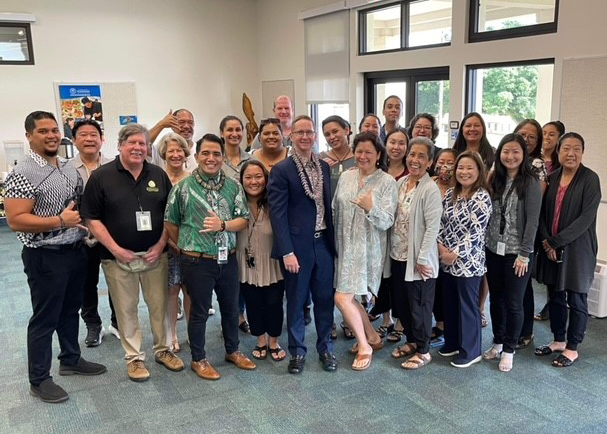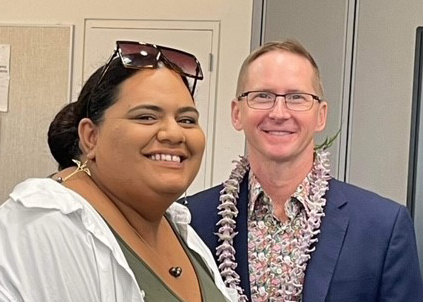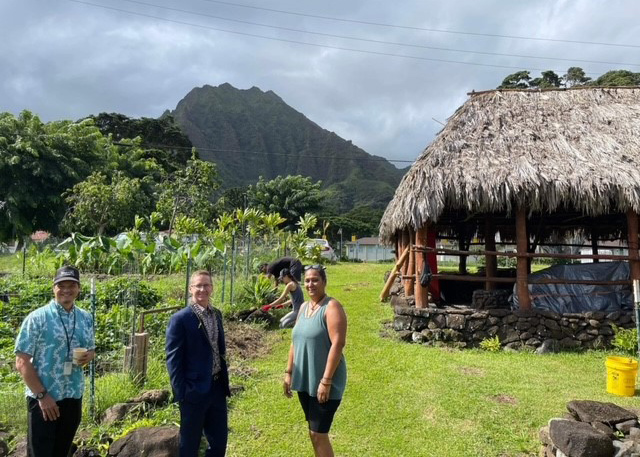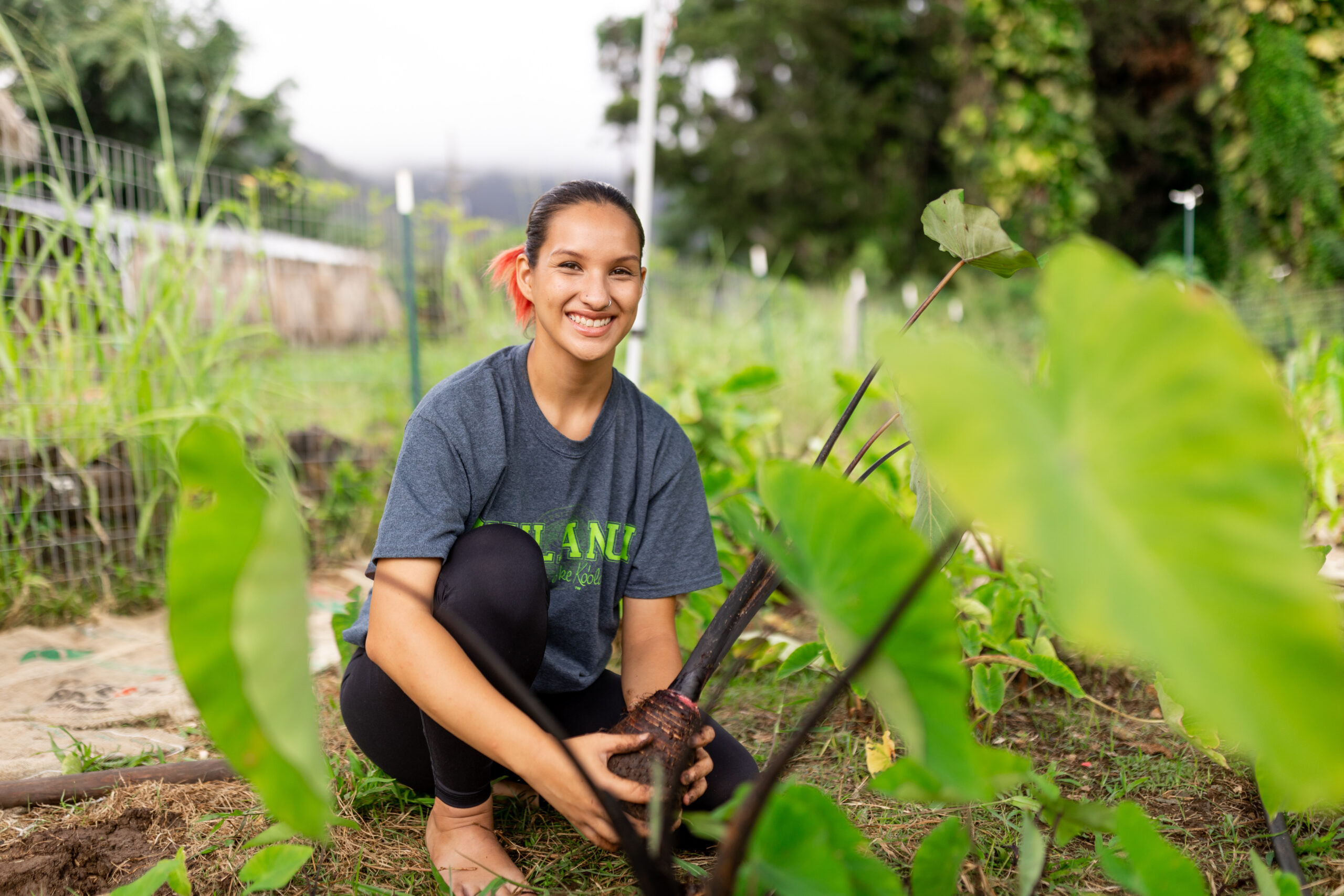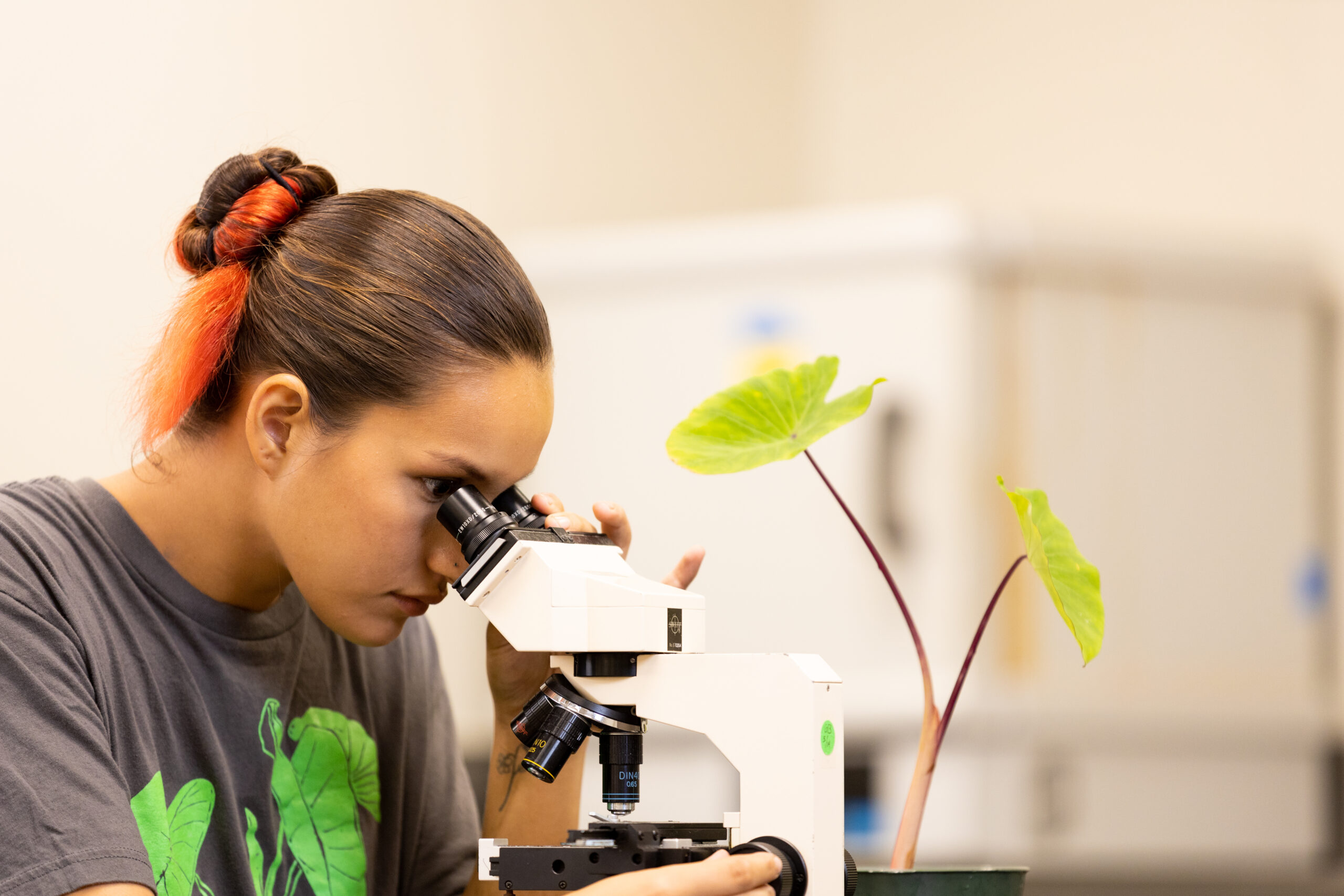Windward Community College (WCC) serves over 2,500 students from the Ko‘olau region of O‘ahu and beyond, and is part of the University of Hawai‘i (UH) Community College System, which includes seven colleges spread over four of the largest seven islands of Hawai‘i. The innovative college offers programs in the arts and sciences and embodies a deep commitment to Hawaiian knowledge and supporting educational access for Native Hawaiians.
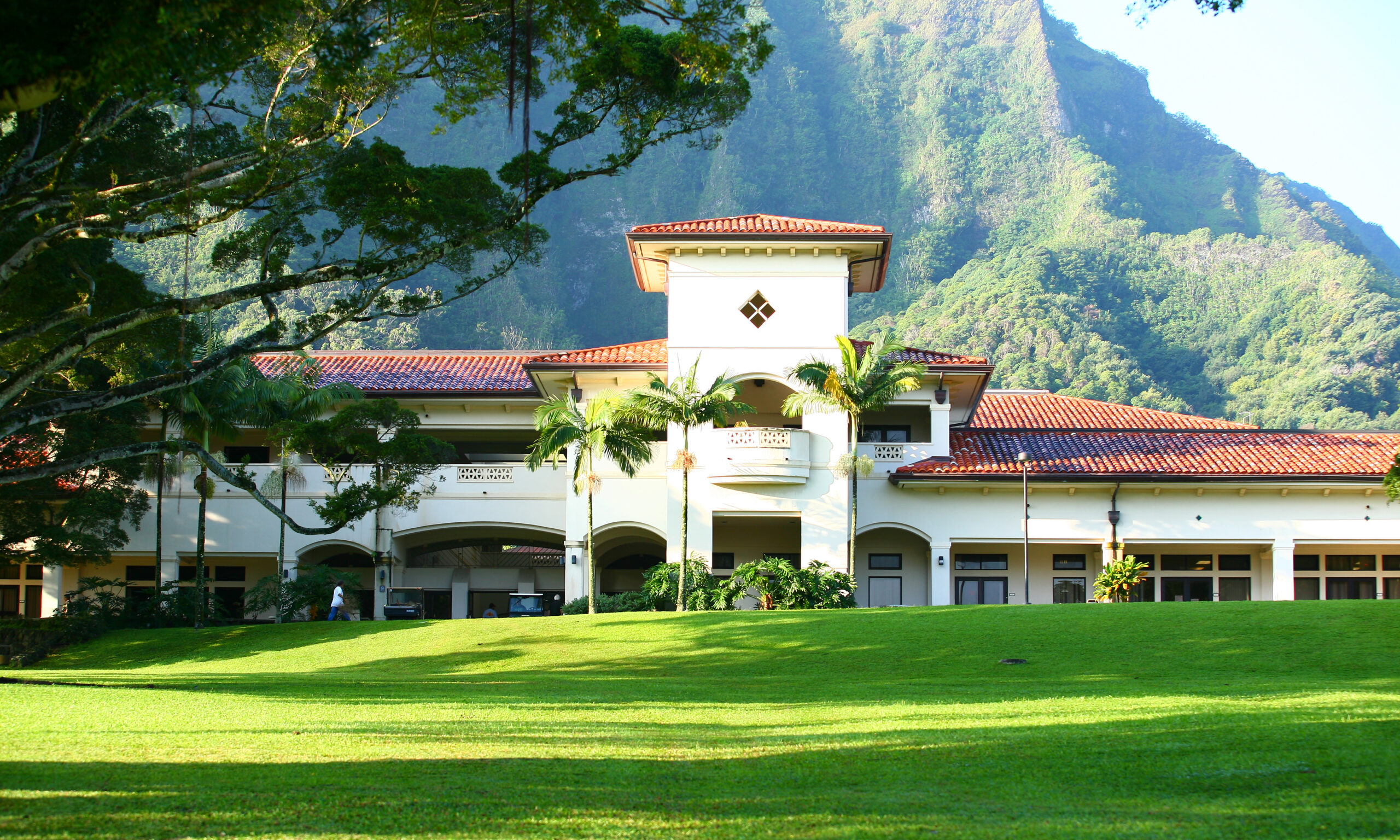
During my visit to Windward Community College, I was welcomed by the college’s chancellor, Dr. Ardis Eschenberg, and the faculty, staff, and students who participated in the Native Hawaiian protocol greeting. The rest of the day was spent touring the campus and meeting the dedicated employees who serve students inside and outside of the classroom.
As part of the visit, I was introduced to WCC’s Sustainable Agriculture program; part of the ‘Ao Kahi Native Hawaiian Career and Technical Education project, which offers up to 100 percent financial support, and assistance with internships and job placement. Priority is given to Native Hawaiian students to obtain recognized postsecondary credentials and hands-on learning. The Sustainable Agriculture program includes lecture courses and lab courses in plant science and agriculture, environment, and society. During this coursework, students learn how to grow plants native to Hawai‘i, grow vegetables and herbs through hydroponic systems, grow algae, graft fruit trees, and even prepare food from native plants like ulu and coconut. Students who have completed the coursework have gone on to UH West O‘ahu BAS in Sustainable Community Food Systems, UH Maui College BAS in Sustainability Science 101 Management, or the UH Mānoa BA in Sustainability, Botany, or Hawaiian Studies BA in Hawaiian Studies, Mālama ‘Āina track. More importantly, it helps students understand sustainability in whatever major and career they choose.
Sustainable Agriculture at Windward Community College
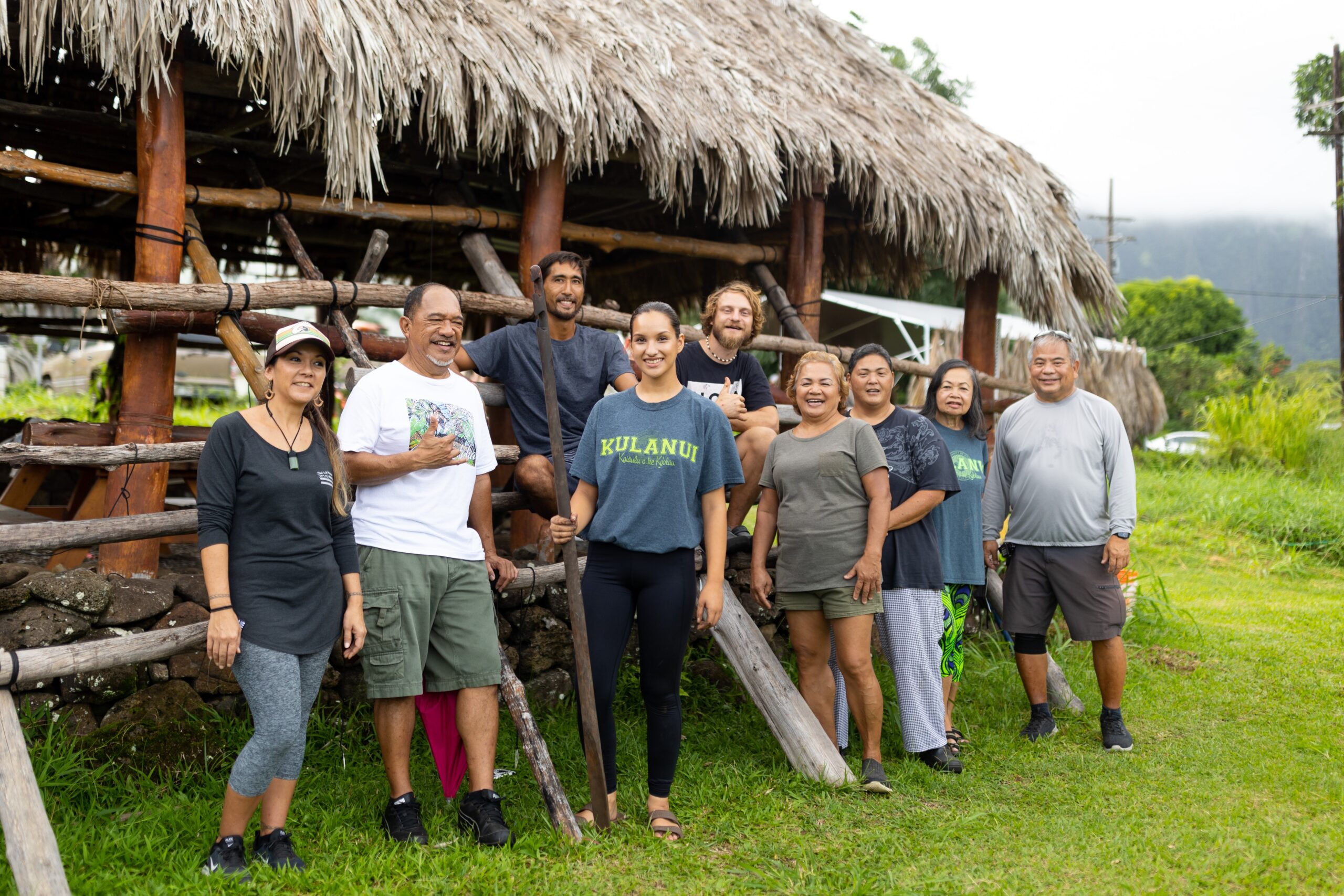
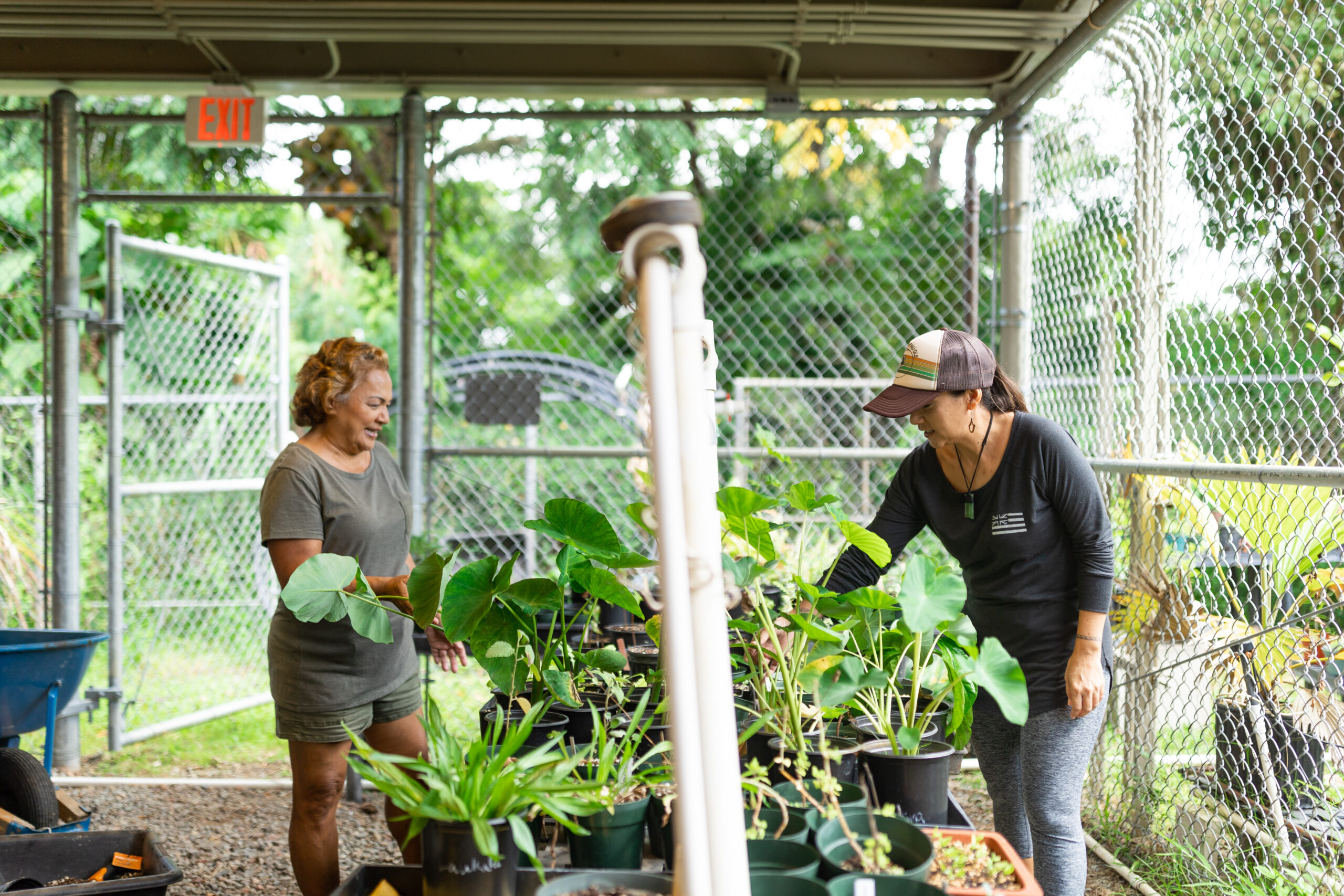
In addition to the Sustainable Agriculture program, WCC offers a certificate of competence in Plant Food Production and Technology to develop a new generation of skilled agricultural-food technicians who seek to expand their skills and knowledge in agricultural biotech and related fields. Another related certificate of achievement is Agripharmatech with two tracks: Plant Biotechnology and Ethnopharmacognosy. The Plant Biotechnology track deals with developing and improving plant production in order to supply the world’s need for healthier (decreased use of pesticides) and more nutritious food crops, novel ornamentals, and plant-derived pharmaceuticals. Ethnopharmacognosy is the study of traditional medicines derived from natural sources (medicinal/nutritious plants).
The WCC nursery is utilized by faculty and students of each of these programs. It is located at Hale Uluwehi and Hawaiian Studies complex and is comprised of hydroponically-grown and land-based gardens tended by students in the Sustainable Agriculture, Certified Nurseʻs Aid and Agripharmatech studies. Food is grown to not only support healthy living and island self-sustainability, but to perpetuate Hawaiian knowledge and ancient native plant-based medicinal healing practices.
Moani Freitas, Windward Community College Sustainable Agriculture Student
WCC is also pleased to highlight a new $3.5 million grant for the Kiaʻi Loko Center for Limu Research.
Limu (algae) research and jobs expected to be generated with a new $3.5 million grant
The new Kiaʻi Loko Center for Limu Research, created and managed by Windward Community College, has received a $3.5 million grant to provide education and limu (algae) research opportunities for the long-term benefits of the Windward community. The grant is from the National Science Foundation’s Tribal Colleges and Universities Program (TCUP).
The center focuses on applying traditional Native Hawaiian knowledge alongside Western scientific methods to study questions important to Native Hawaiians about limu and the traditional Hawaiian fishpond. Aquacultural practices employed in maintaining healthy fishponds and producing limu are essential aspects of traditional Native Hawaiian lifestyles that contribute to critical contemporary issues such as food security, biodiversity and cultural perpetuation.
“The Kiaʻi Loko Center for Limu Research will train students to work in an important emerging industry promoting sustainability and self-reliance in these islands,” said Dave Krupp, dean of sciences at Windward CC. “Working with our partners, we will serve our Koʻolaupoko and Koʻolauloa communities to solve issues of concern such as the restoration of native limu to our reefs and elimination of invasive seaweeds.”
To learn more about Windward Community College, visit their website at https://windward.hawaii.edu/.
